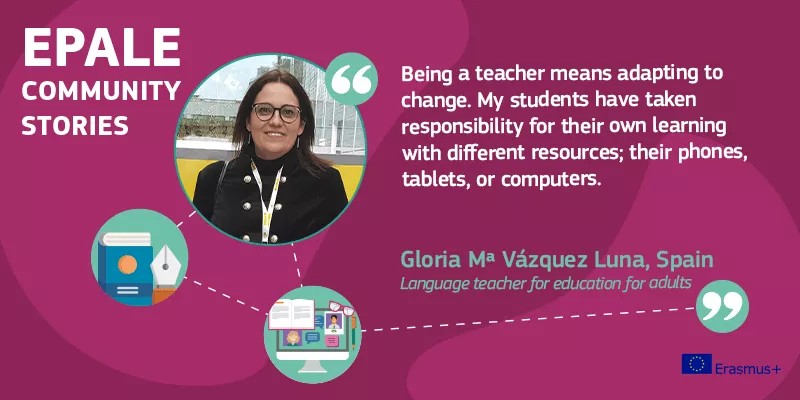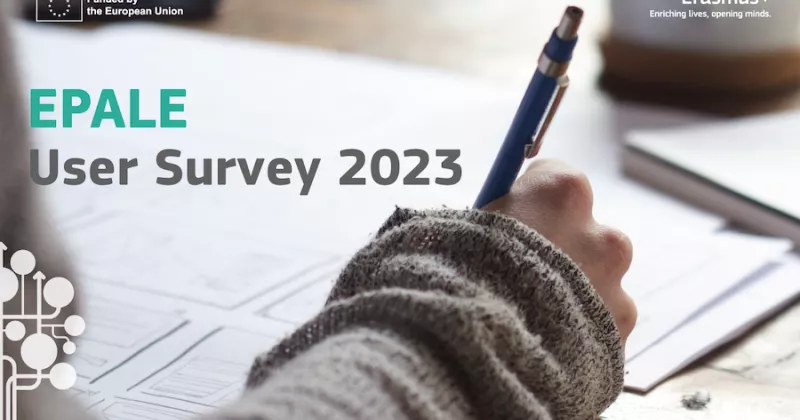Gloria Mª Vázquez Luna, a Community Story from Spain

I am 48 and I am a Spanish language teacher for Education for Adults with 3 years of experience in adult learning. My fields of interest are communication, linguistics and Spanish literature. I discovered EPALE in 2019 and it has been great for the teaching-learning-process.
Being a teacher means adapting to change.
Coronavirus has changed our world, our way of teaching, our way of living. The changes to schooling in times of crisis are happening so rapidly that we have to move quickly and be vigilant to change. School is being revolutionised in an unprecedented fashion. Remote working and educational platforms for student learning have built new classroom communities. If the pandemic had not happened, I would not have used these types of platforms or tools: Zoom, Google Classroom, Skype, Moodle, Meet. Every day, we receive new instructions that offer new teaching solutions. Perhaps, we should be more open-minded. On the other hand, it is too difficult to move classes online in such a short space of time. Even among the digitally ‘native’, my students have not been as comfortable with technology as I thought they would be. Believe it or not, I was anxious that without my physical presence my students would lose interest. On the contrary.
My students have taken responsibility for their own learning with different resources; their phones, tablets, or computers.
Today almost all students have access to a phone. So what have been some of the greatest challenges in moving my curriculum online? One is that the most marginalised pupils might not have access to any electronic device at all. So straightaway they are excluded from digital learning. Consequently, we must adapt to the age of technology that we are in. It is said that the demand for digital jobs is growing quicker than in most employment sectors. As a result, this online training during lockdown serves as good preparation for life after the virus when digital-related jobs are expected to be less vulnerable to change than some other jobs.
In conclusion, I believe that we should continue to explore digital teaching-learning in order to improve adult teaching and in order to evaluate the efficacy of online education. Coronavirus has made me reinvent my way of working. However, I am continuing to teach. The changes keep coming, especially the use of digital platforms and so on. We must now combine physical classes with digital ones, so that we can implement new solutions. My learners are doing everything they can to deal with the consequences that this pandemic has had on their learning process.
What is the main difference between distance learning and classroom-style lessons? You have to pre-empt your students’ difficulties and the feedback is continuous.
Looking forward, I would change the learning of key competences to be more focused on lifelong learning.
We're looking forward to hearing your story. Share your story today!



